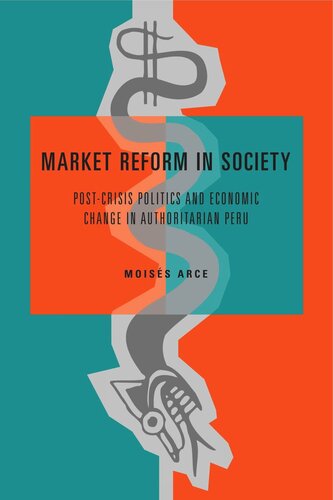

Most ebook files are in PDF format, so you can easily read them using various software such as Foxit Reader or directly on the Google Chrome browser.
Some ebook files are released by publishers in other formats such as .awz, .mobi, .epub, .fb2, etc. You may need to install specific software to read these formats on mobile/PC, such as Calibre.
Please read the tutorial at this link: https://ebookbell.com/faq
We offer FREE conversion to the popular formats you request; however, this may take some time. Therefore, right after payment, please email us, and we will try to provide the service as quickly as possible.
For some exceptional file formats or broken links (if any), please refrain from opening any disputes. Instead, email us first, and we will try to assist within a maximum of 6 hours.
EbookBell Team

5.0
38 reviewsGoing beyond the usual state-centric approach to the study of the politics of neoliberal reform, Moisés Arce emphasizes the importance of understanding the interaction between state reformers and collective actors in society. In Market Reform in Society he helpfully focuses our attention on how various societal groups are affected by different types of reform and how their responses in turn affect the state’s subsequent pursuit of reform.
As a country characterized by strong state autonomy and widespread disintegration of civil society and representative institutions during the 1990s when Alberto Fujimori was president, Peru serves as an excellent case for examining how collective actors can succeed in influencing the reform process. Arce compares reforms in three areas: taxation, pension privatization, and social-sector programs in poverty alleviation and health decentralization. Differences in the concentration or dispersion of costs and benefits, he shows, affected incentives for groups to form and engage in collective action for supporting, opposing, or modifying the reforms.